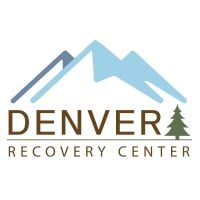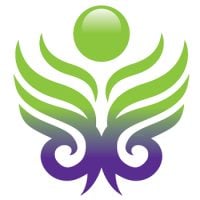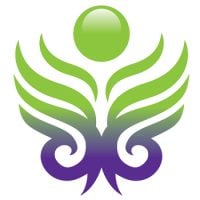Life Recovery Center
Drug Rehab Center in Denver, Colorado
- Substance Abuse
- Opioid Addiction
- Dual Diagnosis
- Alcoholism
Life Recovery Center provides evidence-based, comprehensive outpatient care and dual-diagnosis services to individuals dealing with addiction and substance abuse in Denver, with a focus on compassionate, individualized treatment.
About Life Recovery Center in Colorado
Life Recovery Center in Denver, CO provides a range of treatments to help individuals struggling with addiction, substance and opioid abuse, and dual-diagnosis recovery. They offer personalized care plans tailored to each individual's needs. Their evidence-based therapies are designed to help you learn healthy coping mechanisms and address any contributing factors to their addiction. The three levels of care they provide are outpatient, dual-diagnosis, and intensive outpatien.
The experienced and compassionate staff at the Life Recovery Center work hard to make individuals feel secure and comfortable throughout their treatment. During the process, qualified clinicians work closely with clients to develop a treatment plan tailored to the individual's needs, focusing on empirically supported therapies such as group therapy and trauma therapy. The center strives to create an open and safe environment for all clients so they feel empowered to reach their goals and make meaningful progress in their recovery.
Genders
Ages
Modality
Additional
Conditions and Issues Treated
Substance abuse is a severe problem that affects many people in Denver, CO. It is characterized by the excessive and inappropriate use of drugs, including alcohol, medications, and illicit drugs. Substance abuse can lead to physical or psychological dependence and affect social life and relationships. Treatment options include medications, counseling sessions, behavioral therapy, and group therapy. If you are suffering from substance abuse, contact for the latest treatments available.
Opioid addiction is when someone becomes addicted to opioids. This can happen quickly due to any opioid use. Opioid withdrawal can be uncomfortable and lead the user to continue using even if they want to quit. It’s best to receive inpatient treatment for detoxification.
Even if a person doesn’t need inpatient treatment, it’s recommended to start rehabilitation or at least some kind of outpatient treatment. This is because the withdrawal symptoms from opioids can be uncomfortable and unpleasant, to the point that a person could end up using again or worse.
Detoxification should be done to break the physical addiction of opioids. This can be done with opioid replacement therapy, medication-assisted therapy, or a more traditional detoxification program. Intensive outpatient treatment is a form of addiction care that allows patients to continue living at home while undergoing treatment. This type of care is appropriate for patients who have been treated in residential treatment programs. Intensive outpatient programs include regular visits to the facility providing therapy, and patients gradually return to their routine life. IOP benefits most when patients have a supportive family member or friend to help them recover.
The first step to getting into an intensive outpatient program is to attend a detoxification facility. Detoxification facilities are designed to remove substances from the body safely. The patient will attend sessions designed to help them understand their addiction and its impact on their lives. While in an intensive outpatient program, therapy sessions are scheduled three to five times per week, with the patient attending no more than two sessions in one day.
Dual Diagnosis therapy is considered more successful than traditional rehab methods because it treats the addiction and the underlying mental health disorder simultaneously. This comprehensive approach gives Denver, CO patients the best chance for long-term recovery. If the patient does not receive treatment for both conditions, they are more likely to relapse.
Levels of Care Offered
This center offers a variety of custom treatment tailored to individual recovery. Currently available are Dual-Diagnosis, Intensive Outpatient, Outpatient, with additional therapies available as listed below.
An intensive outpatient treatment program, or IOP, is set up for those struggling with an addiction to begin the recovery process. However, the patient will not live at the facility during treatment.
IOP involves patients coming in and out of a medical office building regularly to receive therapy and other services while continuing their life outside of these visits.
IOP is a step up from drug detoxification or alcohol detox. However, it’s still considered a phase of recovery rather than the ultimate goal. There are many rehabs and treatment facilities available to patients in need of IOP.
Outpatient treatment consists of counseling and therapy sessions. The outpatient treatment process begins with the addict’s initial detox period, lasting about ten days. Outpatient treatment is used for those who are at moderate risk for “slipping back” into the addiction. It is also used for those who are not currently experiencing any side effects from withdrawal, can handle social pressure, have a stable living environment, and have a good support system.
Therapies & Programs
Group Therapy is employed by drug treatment centers like Life Recovery Center to provide the recovering addict with a platform to talk about their feelings and experiences. It also provides for an opportunity to learn from other addicts who have successfully overcome their addiction. It is recommended that all group members be recovering addicts for this type of therapy to work.
This type of therapy involves the use of a variety of therapeutic techniques to help addicts recover from past traumas that might have triggered their substance abuse. During these sessions, therapists will work with the addict to address painful memories and learn how to cope effectively with stressors as they arise.
During these types of sessions, therapists will typically focus on three main goals:
- Identifying and expressing painful emotions associated with past traumas.
- Reducing the effects of stress on an addict’s life by developing more effective coping mechanisms.
- Developing healthy ways of thinking about stressful situations that can help addicts avoid substance abuse issues in the future.
This type of therapy is typically used in conjunction with other types of addiction treatment services. By identifying and dealing with the root cause of addiction, most addicts can overcome their cravings and prevent relapse once they leave rehab.
Many different types of addiction treatment services exist to help addicts safely get sober, but it’s important for recovering individuals to find a therapist or support group that will help them address the root cause of their addiction.
Payment Options Accepted
For specific insurance or payment methods please contact us.
Additional Details
Specifics, location, and helpful extra information.
Denver, Colorado 80234 Phone Number(303) 252-4179 Meta DetailsUpdated November 25, 2023
Staff Verified
Life Recovery Center Patient Reviews
There are no reviews yet. Be the first one to write one.
Denver, Colorado Addiction Information
The Centennial State has slipped to a ranking of 12th in the country for drug abuse. Each year around 24% of the state's population uses illegal drugs while nearly 5% of its population abuses alcohol. Substance-related deaths in Colorado were responsible for 15.12% between 2008 and 2017. Fortunately, Colorado drug and alcohol addiction treatment are available to help a person overcome addiction.
Drug addiction in Denver, Colorado, is quite serious. In 2012, there were 974 drug overdose fatalities in the area, which has likely only gone up in recent years. The city has an estimated 34,000 marijuana users reporting past-month usage in 2016. The most common drugs abused are methamphetamine, heroin, and marijuana. Some popular treatment options include inpatient rehab, outpatient rehab, and detoxification programs.
Treatment in Nearby Cities
- Louisville, CO (8.7 mi.)
- Black Hawk, CO (27.6 mi.)
- Aurora, CO (15.1 mi.)
- Centennial, CO (23.5 mi.)
- Fort Lupton, CO (15.6 mi.)
Centers near Life Recovery Center



The facility name, logo and brand are the property and registered trademarks of Life Recovery Center, and are being used for identification and informational purposes only. Use of these names, logos and brands shall not imply endorsement. RehabNow.org is not affiliated with or sponsored by Life Recovery Center.





